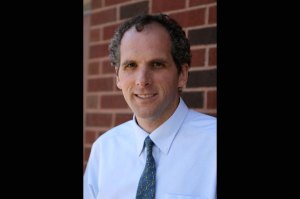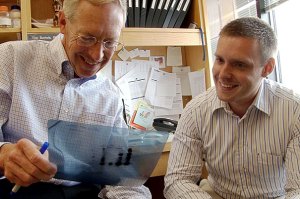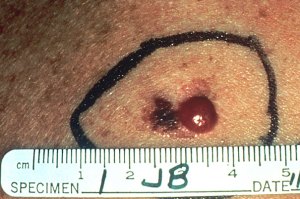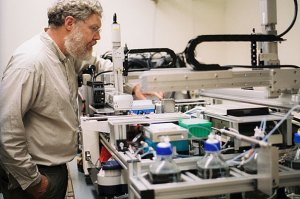Tag: Harvard Medical School
-
Health
The battle for medicine’s soul
Author and surgeon Atul Gawande says effective medicine requires high-quality care and solid research. But it also requires a willingness to adapt.

-
Science & Tech
Following path of genetic footprint
An international team of researchers studying DNA patterns from modern and archaic humans has found that the Denisovans, a recently discovered hominin group, contributed genes to several populations in Asia and that modern humans settled Asia in more than one migration.

-
Health
A transplant makes history
In 1954, Harvard surgeons at the Brigham performed the first successful organ transfer, a kidney exchanged between twins, opening a major medical field, and giving life and hope to thousands of patients.

-
Campus & Community
Kenneth L. Baughman
Dr. Kenneth L. Baughman died on November 16, 2009, after being struck by an automobile while running during the American Heart Association Annual Scientific Sessions in Orlando, Florida. His tragic death at age 63 threw into relief the enormous impact he had on the Harvard community in his seven years on our faculty, as the…
-
Campus & Community
Doggone that stress
Back-to-school pressures don’t rise just for students. Faculty and staff can feel the pinch too. A new therapy dog at Harvard Medical School is one of many creative solutions employed around the University.

-
Health
Harvard serves up its own ‘Plate’
The Healthy Eating Plate, a visual guide that provides a blueprint for eating a healthy meal, was unveiled today by Harvard nutrition experts.

-
Health
Disrupting a cancer gene
Scientists at Harvard-affiliated Dana-Farber Cancer Institute have successfully disrupted the function of a cancer gene involved in the formation of most human tumors by tampering with the gene’s “on” switch and growth signals, rather than targeting the gene itself.
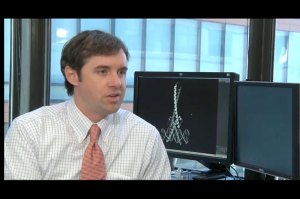
-
Health
Economic impact of living with a smoker
Children who live in households where they are exposed to tobacco smoke miss more days of school than do children living in smoke-free homes, a new nationwide study confirms.

-
Health
Advances in type 2 diabetes drugs
Researchers from Harvard-affiliated Dana-Farber Cancer Institute and the Scripps Research Institute in Jupiter, Fla., report they have created prototype drugs having powerful anti-diabetic effects, yet apparently free — at least in mice — of dangerous side effects plaguing some current diabetes medications.

-
Science & Tech
Wake-up call
Insomnia is costing the average U.S. worker 11.3 days, or $2,280, in lost productivity every year, according to a study led by Ronald Kessler of Harvard Medical School.

-
Campus & Community
Banner year ahead
Harvard gears up to celebrate an event-filled 375th anniversary, embracing what President Faust calls a “tradition of imaginative change.”

-
Health
Attacking Ebola
Two Harvard-led research teams report identifying a critical protein that Ebola virus exploits to cause deadly infections. The protein target is an essential element through which the virus enters living cells to cause disease.
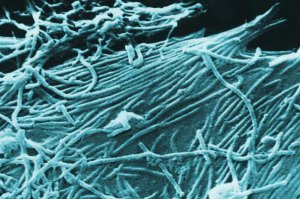
-
Health
Too much variety
More choices for Medicare beneficiaries may not always be better, according to Harvard Medical School research.

-
Campus & Community
Havens, professor of psychology, dies
Leston Havens, professor of psychology emeritus at Harvard Medical School, died on July 29 after an extended illness.
-
Health
What’s behind the predictably loopy gut
Between conception and birth, the human gut grows more than two meters long, looping and coiling within the tiny abdomen. Within a given species, the developing vertebrate gut always loops into the same formation — however, until now, it has not been clear why.

-
Campus & Community
Brown wins Sacks Award for research
The National Institute of Statistical Sciences has presented the 2011 Jerome Sacks Award for Cross-Disciplinary Research to Emery N. Brown of MIT and Harvard.
-
Health
Sleep, oxygen, and dementia
Harvard research finds that sleep-disordered breathing is associated with a higher risk of cognitive impairment in older women.

-
Campus & Community
Schermerhorn named distinguished fellow
The Society for Vascular Surgery elected Harvard Medical School professor Marc Schermerhorn as a distinguished fellow.
-
Health
New territory
A consortium led by scientists at the University of Oxford and Harvard Medical School has constructed the world’s most detailed genetic map, built from data from 30,000 African-Americans. The researchers assert that this is the most accurate and highest resolution genetic map yet.

-
Health
When to alter cancer screenings
Not only is it important for physicians to be fully informed about any cancer in their patients’ family histories, but a massive new study led by a Harvard researcher at Massachusetts General Hospital (MGH) and a University of California scientist indicates that it is important to update that history whenever there are contemporaneous changes in…
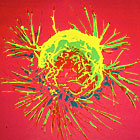
-
Health
Finding ovarian cancer’s vulnerabilities
In their largest and most comprehensive effort to date, researchers from the Broad Institute of Harvard and MIT and Dana-Farber Cancer Institute, a Harvard affiliate, examined cells from more than 100 tumors, including 25 ovarian cancer tumors, to unearth the genes upon which cancers depend. They call it Project Achilles.
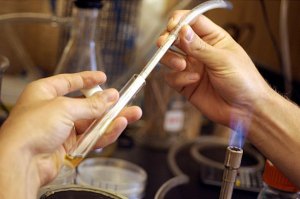
-
Health
When estrogen isn’t the culprit
Although it sounds like a case of gender confusion on a molecular scale, the male hormone androgen spurs the growth of some breast tumors in women. In a new study, Harvard scientists at Dana-Farber Cancer Institute provide the first details of the cancer cell machinery that carries out the hormone’s relentless growth orders.

-
Campus & Community
Sackstein granted $17M for research
Dermatologist Robert Sackstein has been awarded a prestigious $17 million grant from the National Heart, Lung and Blood Institute of the National Institutes of Health.




